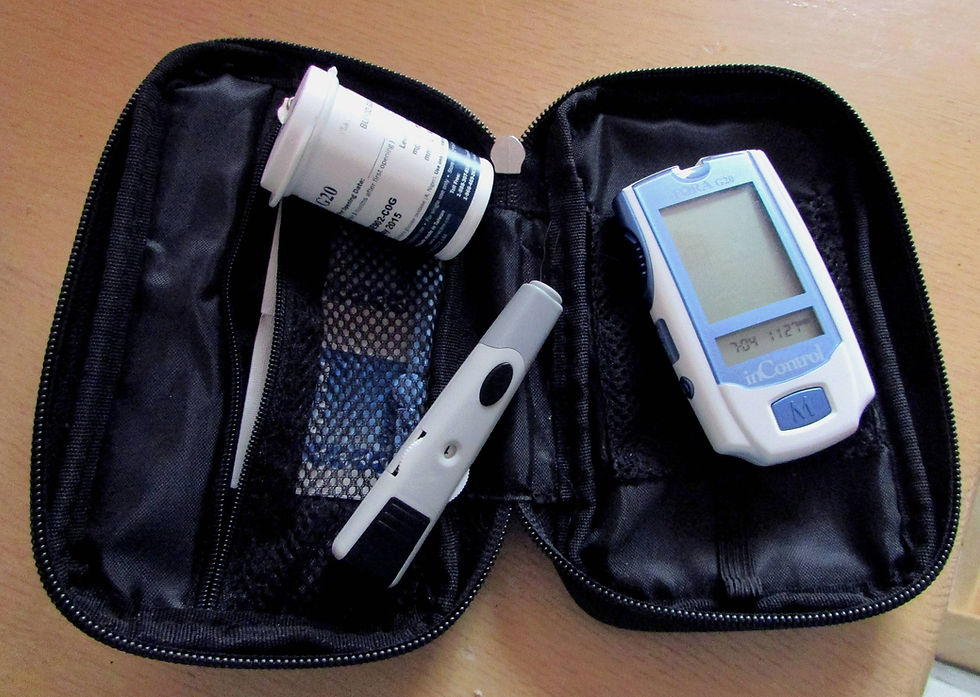Brain Fog, Fatigue, Sugar Cravings, Dizziness... Learn How to Stabilize Your Blood Sugar
- Christian Allgood
- Dec 3, 2022
- 2 min read
Updated: Jun 16, 2023

What does it mean to balance your blood sugar? Before you say, “But I don’t eat a lot of sugar.” Let me explain a few things. While eating too much sugar can play a role, unbalanced blood sugar is usually due to not eating (skipping meals) or not properly balancing your macronutrients (macros). Macros are protein, fat, and carbohydrates (carbs). Eating too many carbs without protein and fat is a surefire way to be on the blood sugar rollercoaster by spiking it and having it come crashing down. Read on to learn how to stabilize your blood sugar.
Symptoms of Blood Sugar Balance Dysfunction:
Brain fog
Confusion or irrational
Anxiety
Heart palpitations
Fatigue
Dizziness/light-headedness
Headaches
Sweating
Irritability/hangry
Nausea
Tremors/shakiness
Hot flashes
Craving sweets
Urgent hunger
Snacking all-day
Wake in the middle of the night, usually between 2 and 4 am
Benefits of Balanced Blood Sugar:
Energy
Focus
Hormone balance
Stronger immune system
Lower risk for a cardiovascular event
Weight loss
Stay satiated longer after eating
Better moods
Better sleep
How Much Do I Eat?
Using an app like Carb Manager is a great way to learn how many grams of each macro are in your foods. Although marketed as a keto app, you can manually input your specific macro percentages. It is recommended to start by setting it to have your daily macros as follows as the Zone Diet:
40% Carbohydrates
30 % Proteins
30% Fats
The 40/30/30 is a great starting point for the first 2-4 weeks as you switch up your diet and balance your blood sugar. From there, I recommend minimizing your carbs and getting out of a sugar-burning mode and into a fat-burning mode to use fat as energy.
Carb Manager How-To Videos for Setup and Use.
Tips for Balancing Blood Sugar Levels
Eating protein & fat within an hour of rising is important.
Intermittent fasting is not good for people with HPA-axis dysfunction & blood sugar issues that haven’t been addressed.
Skipping meals is a no-no! Start with 3 meals & 2-3 snacks (all with fat & protein in them) until feeling better. Then try to go without snacks as blood sugar becomes stable. It’s not good to be digesting food all day!
Don’t eat carbs alone!
Start macros at 40% carbs, 30% fat & 30% protein for blood sugar regulation.
Eat your fibrous greens first, then protein & fat, followed by starches & carbs.


Comments